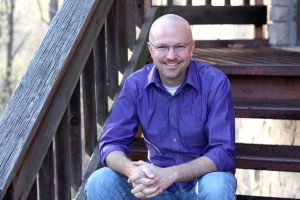
A lot is going on in adolescence. During these years, tremendous changes are happening in the body and brain, not to mention the sexual, social, relational, and spiritual awakenings. Sadly, teen prescription abuse is often a part of adolescence as well.
Daniel Siegel, MD, is a clinical professor of psychiatry at the UCLA School of Medicine, and author of Brainstorm; The Power and Purpose of the Teenage Brain. He writes, “Brain changes during the early teen years set up four qualities of our minds during adolescence: novelty seeking, social engagement, increased emotional intensity, and creative exploration.” [1]
These qualities, which are healthy and needed for adult development, can also make teens more vulnerable to abusing prescription drugs. And some do.
The 2017 National Survey on Drug Use and Health found that about two million Americans misused prescription pain relievers for the first time in 2017. This averages to approximately 5,480 new users per day. [2]
Many of these are age 12-17. Estimates vary but anywhere from 5-11% of teens have misused or abused prescription drugs in the last year. [3,4,5]
The National Institute of Drug Abuse recently reported on two new studies published in the July issue of the Journal of the American Academy of Child and Adolescent Psychiatry. Both revealed that “adolescents using multiple sources for prescription medications are at high risk for other substance use.” [6]
In one survey of high school seniors [7]:
- 44% used multiple supply sources to get prescription drugs
- 30% of those who misused prescription drugs took their leftover medication, with girls more likely to take leftovers than boys
- Boys were more likely to obtain prescription drugs from friends or purchase them
The other study found that 70% of adolescents who obtained prescription drugs from multiple sources had a substance use disorder within the previous year involving prescription medications, other drugs, or alcohol. [8]
Teen Prescription Abuse and Supporting Them
 Properly disposing of unused drugs, monitoring prescriptions that come into the house, keeping powerful drugs such as painkillers locked away; all of these are beneficial and helpful. But, building strong relationships with teens and balancing warmth with structure is key to helping teens navigate the adolescent years.
Properly disposing of unused drugs, monitoring prescriptions that come into the house, keeping powerful drugs such as painkillers locked away; all of these are beneficial and helpful. But, building strong relationships with teens and balancing warmth with structure is key to helping teens navigate the adolescent years.
Dr. Siegel suggests that to support teens (and yes, he has raised teenagers!), parents will need support and patience. He writes that parents need to find a balance between a teen’s personal decisions and parental regulation.
“Structure with empowerment is how my wife and I would think of our strategy of parenting…Science would call this ‘authoritative parenting,’ a helpful approach that is filled with warmth, limit setting, and honoring of autonomy in age-appropriate ways.”
REFERENCES:
[1] Siegel, D. J. (2013). Brainstorm. The power and purpose of the teenage brain. New York: Jeremy P. Tarcher/Penguin.
[2] National Institute on Drug Abuse. (n.d.). Summary of Misuse of Prescription Drugs. Retrieved October 18, 2019, from https://www.drugabuse.gov/publications/research-reports/misuse-prescription-drugs/.
[3] McCabe, S. E., Veliz, P., Wilens, T. E., West, B. T., Schepis, T. S., Ford, J. A., … Boyd, C. J. (2019, July). Sources of Nonmedical Prescription Drug Misuse Among US High School Seniors: Differences in Motives and Substance Use Behaviors. Retrieved October 18, 2019, from https://www.ncbi.nlm.nih.gov/pubmed/30926573.
[4] Prescription Drugs. (2019, May 1). Retrieved October 18, 2019, from https://teens.drugabuse.gov/drug-facts/prescription-drugs.
[5] National Institute on Drug Abuse. (n.d.). What is the scope of prescription drug misuse? Retrieved October 18, 2019, from https://www.drugabuse.gov/publications/research-reports/misuse-prescription-drugs/what-scope-prescription-drug-misuse.
[6] National Institute on Drug Abuse. (2019, August 8). Teens who misuse medicines get them from multiple sources. Retrieved October 18, 2019, from https://www.drugabuse.gov/news-events/latest-science/teens-who-misuse-medicines-get-them-multiple-sources?utm_source=daRSS&utm_medium=email&utm_campaign=da-researcherdigest.
[7] McCabe, S. E., Veliz, P., Wilens, T. E., West, B. T., Schepis, T. S., Ford, J. A., … Boyd, C. J. (2019, July). Sources of Nonmedical Prescription Drug Misuse Among US High School Seniors: Differences in Motives and Substance Use Behaviors. Retrieved October 18, 2019, from https://www.ncbi.nlm.nih.gov/pubmed/30926573.
[8] Schepis, T. S., Wilens, T. E., & McCabe, S. E. (n.d.). Prescription Drug Misuse: Sources of Controlled Medications in Adolescents. Journal of The American Academy of Child and Adolescent Psychiatry, 58(7), 670–680.
About the Author:
 Travis Stewart, LPC has been mentoring others since 1992 and became a Licensed Professional Counselor in 2005. His counseling approach is relational and creative, helping people understand their story while also building hope for the future. Travis has experience with a wide variety of issues which might lead people to seek out professional counseling help. This includes special interest in helping those with compulsive and addictive behaviors such as internet and screen addiction, eating disorders, anxiety, and perfectionism. Specifically, he has worked with eating disorders since 2003 and has learned from many of the field’s leading experts. He has worked with hundreds of individuals facing life-threatening eating disorders in all levels of treatment. Travis’ website is wtravisstewart.com
Travis Stewart, LPC has been mentoring others since 1992 and became a Licensed Professional Counselor in 2005. His counseling approach is relational and creative, helping people understand their story while also building hope for the future. Travis has experience with a wide variety of issues which might lead people to seek out professional counseling help. This includes special interest in helping those with compulsive and addictive behaviors such as internet and screen addiction, eating disorders, anxiety, and perfectionism. Specifically, he has worked with eating disorders since 2003 and has learned from many of the field’s leading experts. He has worked with hundreds of individuals facing life-threatening eating disorders in all levels of treatment. Travis’ website is wtravisstewart.com
The opinions and views of our guest contributors are shared to provide a broad perspective of addictions. These are not necessarily the views of Addiction Hope, but an effort to offer a discussion of various issues by different concerned individuals.
We at Addiction Hope understand that addictions result from multiple physical, emotional, environmental and genetic factors. If you or a loved one are suffering from an addiction, please know that there is hope for you, and seek immediate professional help.
Reviewed and Approved by Jacquelyn Ekern, MS, LPC on October 22, 2019
Published October 22, 2019, on AddictionHope.com
